New documents show that China seeks to expand its influence and military deployments in the Asia-Pacific islands nearly to the point of making one country, the Solomon Islands, into a vassal state.
The PLA Navy (PLAN) ships that dock in the Solomons could then supposedly protect Chinese citizens and infrastructure projects, according to the document. Local Chinese security personnel could provide extraterritorial policing and quell “social unrest” domestically.
Beijing’s move to militarize and domestically control the Solomons is a direct threat to American and Australian attempts to foster small and independent democracies in the region.
China’s cash for votes in the Solomons have allegedly reached as much as $615,000 per parliamentarian, according to reporting.
The Solomons’ public is largely against Beijing’s influence in the country, to the point that in November, residents rioted against the government and burned down a police station and parts of Chinatown.
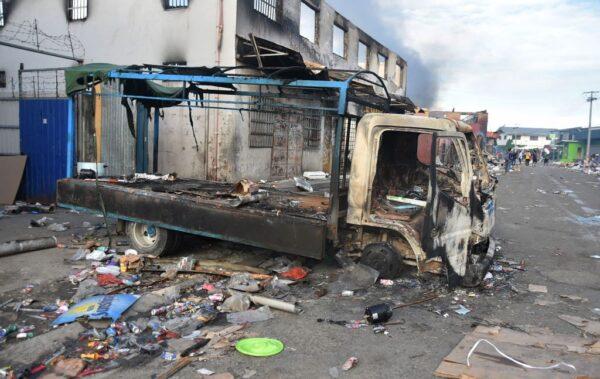
The draft agreement with Beijing includes a provision for extraterritorial policing by the regime in the Solomons.
“The agreement included clauses that PLA vessels would be protected by Chinese security personnel when they docked in the Solomon Islands,” according to the Financial Times. “Chinese forces could also be called on to control ‘social unrest’ in the country and to protect Chinese personnel and projects.”
Beijing can point to precedent for inserting its security forces. In addition to over 100 Australian police and defense personnel, the Solomons’ government invited 10 police officers from China during the November riots.
Given the totalitarian nature of Beijing’s regime, the Solomons’ increasing security collaboration with the dictatorship should concern the United States and allies about Beijing’s growing influence in the Asia-Pacific. In 2019, the Solomons switched diplomatic recognition from Taiwan to China, and the islands’ fall into Beijing’s orbit has since then only worsened.
Grant Newsham, a security expert who focuses on the Asia-Pacific, told The Wall Street Journal that the draft “is basically a treaty for a protectorate.”
Jonathan Pryke, at think tank Australia’s Lowy Institute, told the Journal, “It’s a pretty expansive security agreement that would be far greater than any agreement that China has made with any Pacific Island nation.”
As liberal hegemony is a contradiction in terms, Sogavare misunderstands one or both concepts. Liberalism, as applied to international relations, supports a world of free and independent democracies without any hegemonic power.
As the United States has since World War I been the world’s most powerful liberal democracy, the burden of policing transgressions against the liberal world order has tended, unfairly, to fall on Washington. This includes fighting off Adolf Hitler, Josef Stalin, Mao Zedong, Xi Jinping, and Vladimir Putin throughout Europe and countries like Korea, Vietnam, Afghanistan, and Ukraine, where the latter four dictators supported the illiberal expansion of authoritarian militaries.
Beijing supports its attempt to supplant the liberal world order with its own CCP hegemony by claiming that this costly responsibility borne by Washington is actually a form of hegemony or imperialism, which couldn’t be further from the truth.
The Solomons’ permanent secretary for the Ministry of Police, National Security and Correctional Services, Karen Galokale, tried to downplay the draft security agreement in a comment to the Journal, saying, “If ever there is any ... such agreement, it will just be the same as what we have with countries like Australia.”
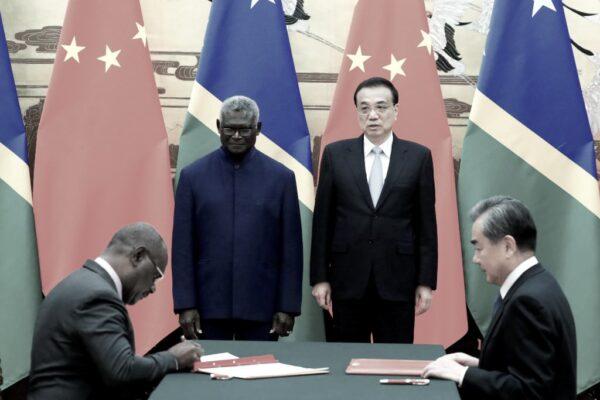
But Galokale elides on the fact that any security arrangement with an aggressive totalitarian power is the opposite of a defensive agreement with a fellow democracy. Through security agreements with Beijing, the Solomon Islands government is setting itself against, rather than for, democracy. It is choosing sides, and that side is the CCP.
The United States and Australia are attempting to counter Beijing’s growing illiberal influence in the Solomons through an incentive-heavy approach to increasing economic activity regionally. The United States plans to open an embassy in the country, where currently there is only a consulate. The closest U.S. Embassy is presently in Port Moresby, Papua New Guinea, over 800 miles from the Solomons’ capital city of Honiara.
However, even these planned diplomatic and economic improvements, which are part of the Biden administration’s publicly ambiguous strategy of supposedly not asking countries to take sides against Beijing, have been too weak to stop the CCP’s growing regional and international influence.
Worse, increasing economic engagement with the Solomons awards bad behavior. Based on perverse short-term incentives, other countries will rationally conclude that negotiating a PLA base might also get them economic benefits from democracies.
Conversely, Beijing has a disincentive-heavy approach to international politics, sanctioning or even attacking countries that cross the CCP. In February, China’s navy shined a military-grade laser at an Australian surveillance plane over Australia’s own territorial waters.
Over the past five years, China has similarly attacked American planes. The lasers could damage the eyesight of pilots and are clear military provocations against the provision of global security that since the end of World War II has rightly been led by the democracies.
Beijing’s attempts at expanding its influence and military activities in the Solomons, or anywhere else, should be more vigorously opposed by the United States, Australia, Japan, and other democracies in the region, through sticks in addition to carrots. Doing so will require greater commitments by democratic leaders in the region to recognize Taiwan rather than Beijing. But it will also require a demand for more discipline among countries like the Solomon Islands, which should be expected to refuse any economic or military overtures from Beijing.
Those leaders and countries that do allow themselves to be used by totalitarian powers such as China should be voted out of power, with Western and allied encouragement, and economically sanctioned in order to guide their countries back to a path that is supportive of democracy on not just a local but a global level.
If the situation in the Solomons degrades to the level of a PLA military base close to a key democratic ally like Australia, those who believe in defending freedom should support a naval blockade of the island.
At some point, the gloves must come off against totalitarian powers like China, or they will just continue to expand geographically and militarily, to the detriment of democracy’s future.
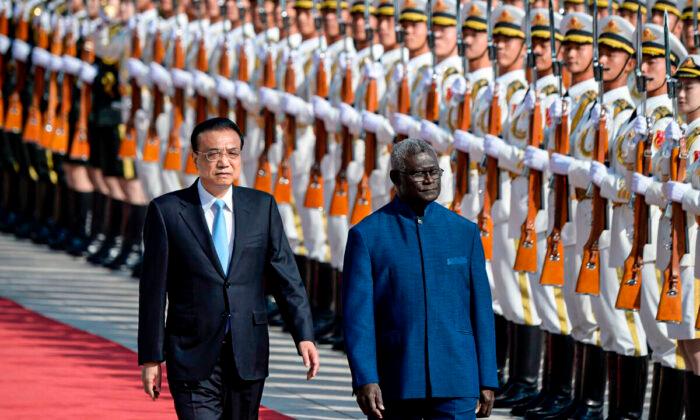

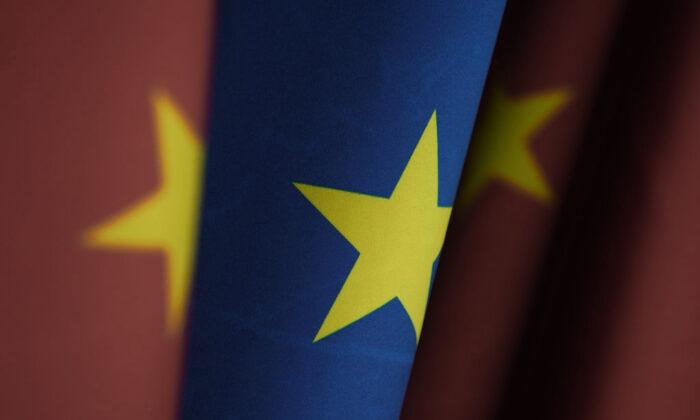
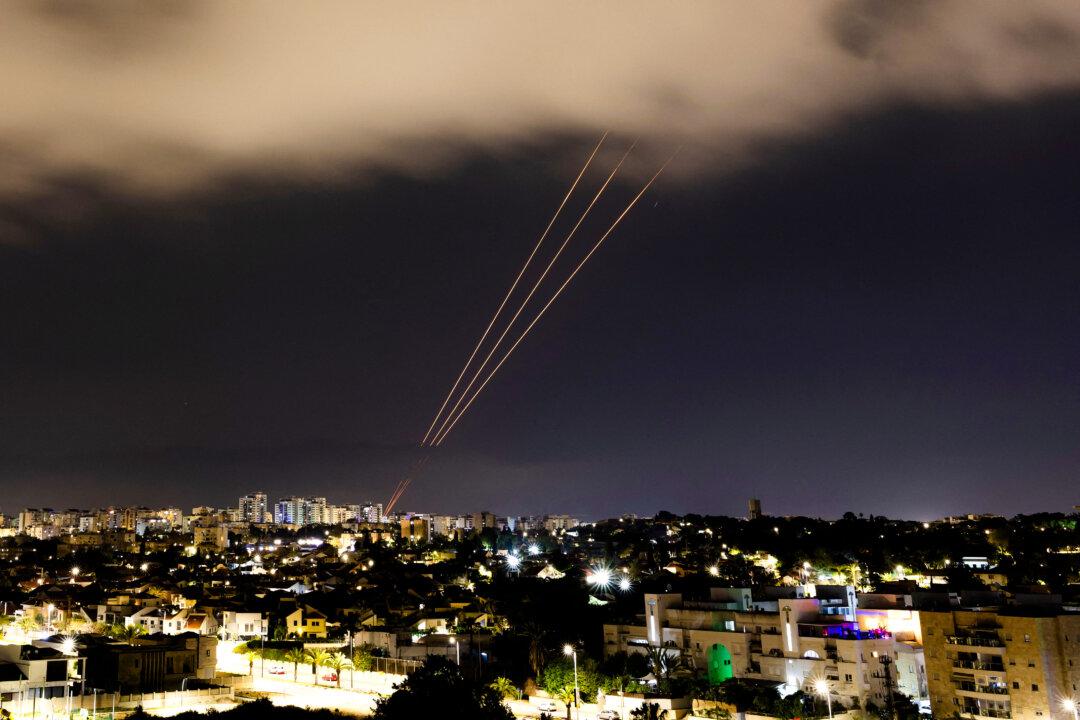

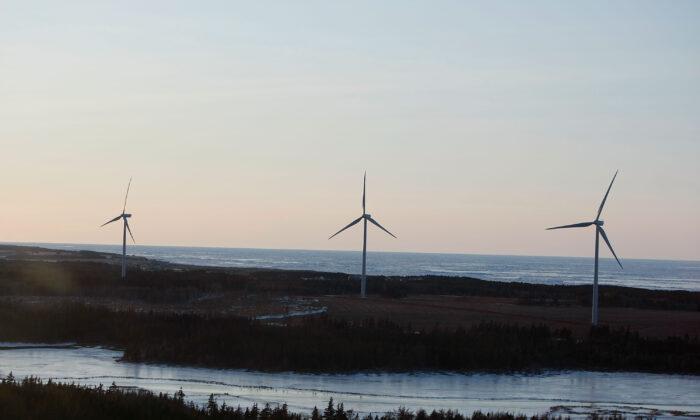
Friends Read Free